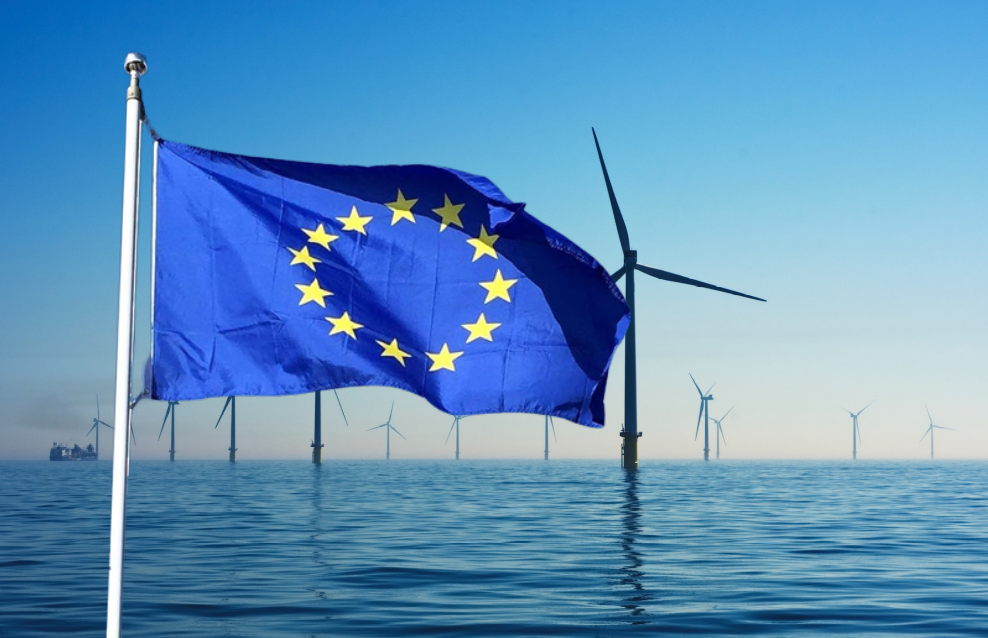
In a bid to achieve the EU target of at least 42.5% renewable energy by 2030, with aspirations of reaching 45%, the European wind power industry is set for a significant overhaul. The European Commission has unveiled an extensive European Wind Power Action Plan, aimed at ensuring the clean energy transition aligns with industrial competitiveness.
Addressing Unique Challenges
While the wind power sector has a storied history of success within the EU, it faces a distinct set of challenges in its trajectory forward. These include uncertain demand, complex permitting processes, limited access to raw materials, rising inflation, and commodity prices, alongside design constraints in national tenders. Added to this mix is mounting pressure from international competitors and potential shortages in skilled labor.
Immediate Actions Outlined
The Action Plan, a collaborative effort between the Commission, Member States, and industry stakeholders, outlines immediate actions across six crucial areas:
1. Deployment Acceleration
In 2022, the wind power sector witnessed an impressive 47% increase in installations compared to the previous year, amounting to 16 GW. However, to meet the 2030 renewable energy target, a staggering 37 GW/year is required. The Commission is launching the “Accele-RES” initiative to expedite the implementation of revised EU renewable energy rules, with a focus on digitalizing permitting processes and providing technical support to Member States.
2. Enhanced Auction Design
Building on proposed industry reforms, the Commission will assist Member States in refining auction procedures. Well-designed, objective criteria will be introduced to incentivize the use of higher value-added equipment and ensure project completion within stipulated timelines.
3. Facilitating Access to Finance
To catalyze investment in European wind energy manufacturing, the Commission will streamline access to EU financing, leveraging tools like the Innovation Fund. The European Investment Bank (EIB) will offer de-risking guarantees to expedite funding.
4. Ensuring Fair Competition
The Commission will vigilantly monitor potential unfair trade practices, while leveraging trade agreements to facilitate access to foreign markets. Efforts will be made to promote the adoption of EU and international standards within the sector.
5. Skills Development
Partnerships for Renewable Energy will play a pivotal role in nurturing skills development projects. European net-zero industry skills academies will be established, including one dedicated to the wind sector, aiming to upskill and reskill workers.
6. Industry Collaboration and Commitments
Collaboration between Member States and the wind industry will be fostered through the EU Wind Charter, aimed at creating an enabling environment for the European wind industry.
Charting the Future of Offshore Wind
Offshore wind is poised to make substantial contributions to the EU’s climate and energy objectives. Member States have set ambitious goals for offshore renewable energy generation by 2050, necessitating significant expansion. The Commission is redoubling its efforts to support the offshore renewables sector, focusing on grid infrastructure, regional cooperation, permitting acceleration, integrated Maritime Spatial Planning, research and innovation, and supply chain development.
In a statement, Maroš Šefčovič, Executive Vice-President for European Green Deal, “There can be no successful green transition without a strong industrial base. We need to make sure all sectors are able to operate in a conducive environment to effectively contribute to reaching our ambitious climate and energy goals. This package will help the European wind sector to grow at home and compete globally, thus reducing dependencies on external suppliers and creating green jobs for workers.“emphasized the pivotal role of a robust industrial base in a successful green transition. He underscored the importance of reducing dependencies on external suppliers while generating green jobs.
Kadri Simson, Commissioner for Energy, reaffirmed the EU’s commitment to collaborate with Member States and industry players to translate legislative targets into tangible progress,saying, “The EU is determined to lead the energy transition, and to seize the opportunity to create economic growth and green jobs. The wind sector is key for the achievement of our clean energy and climate goals, but we need to make sure it can do business in a fair and supportive environment. We are committed to work together with Member States and the industry to turn our legislative targets into reality on the ground. The actions we set out today will make sure that the wind sector remains a strong European power player.“

